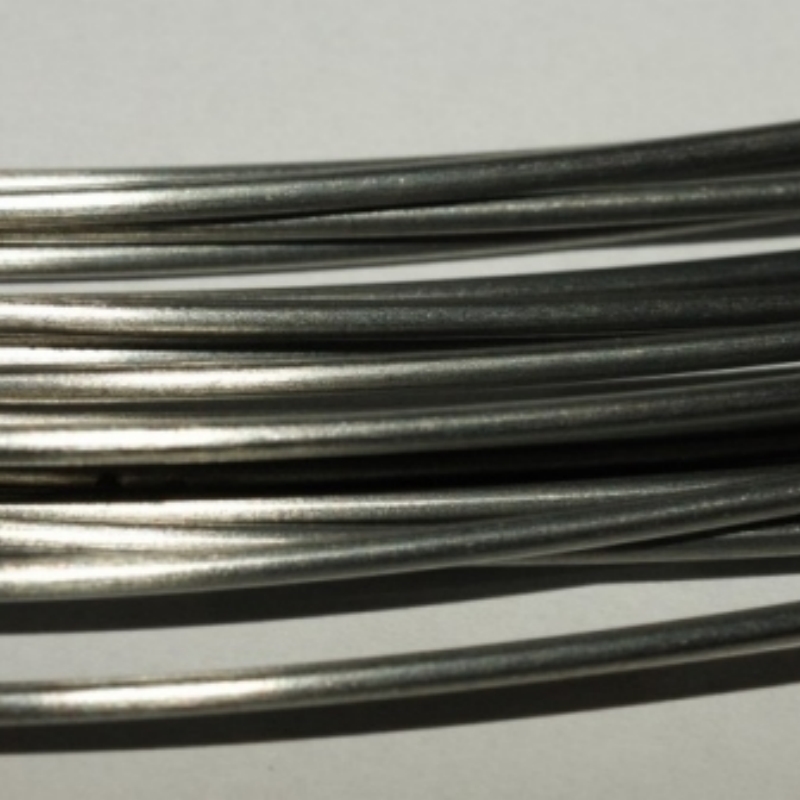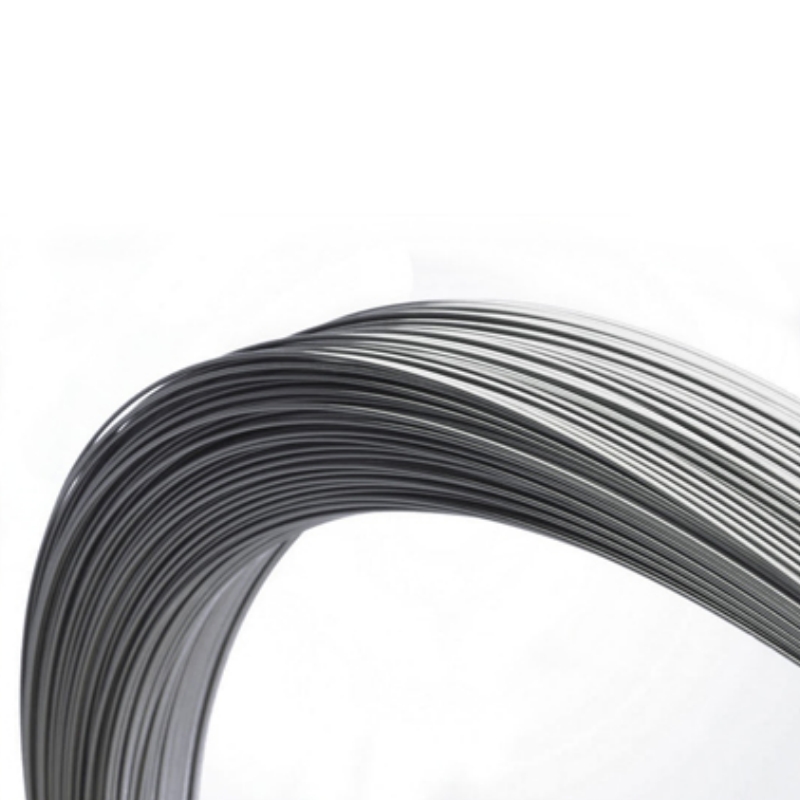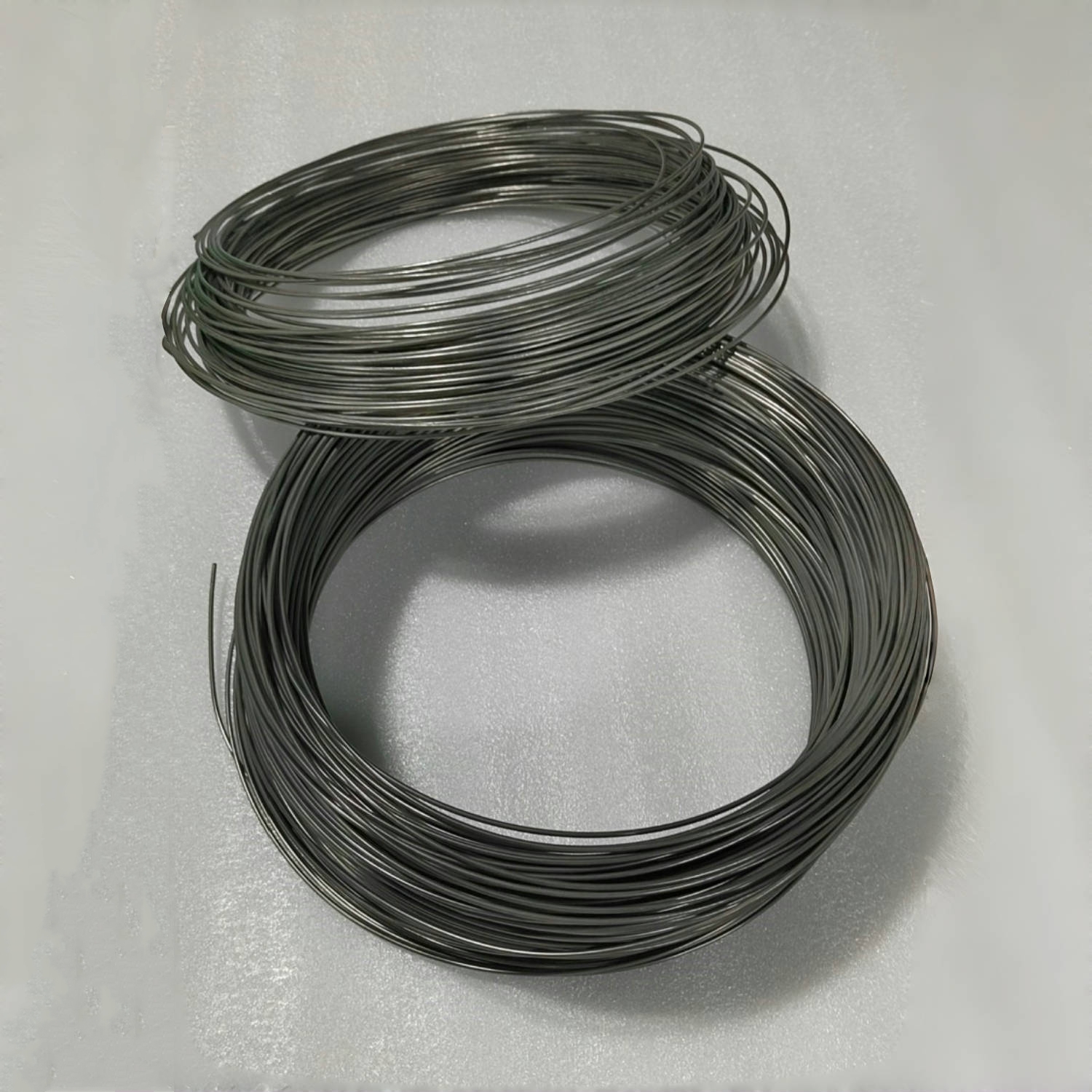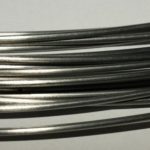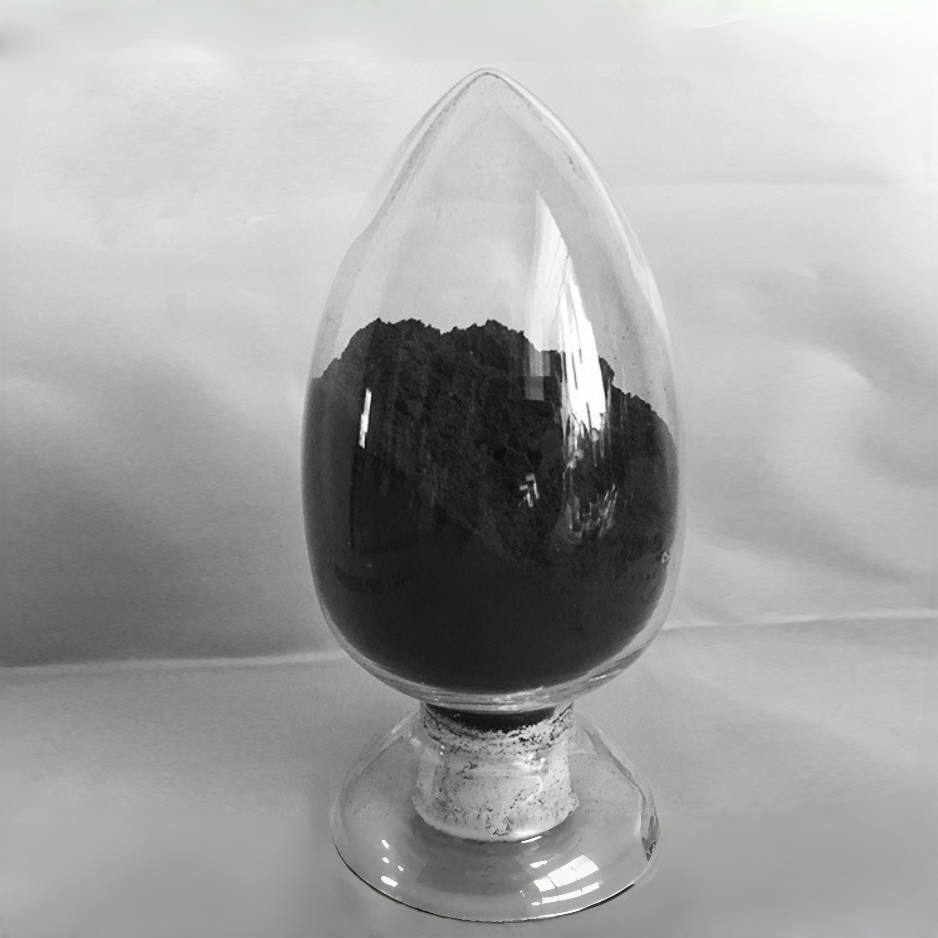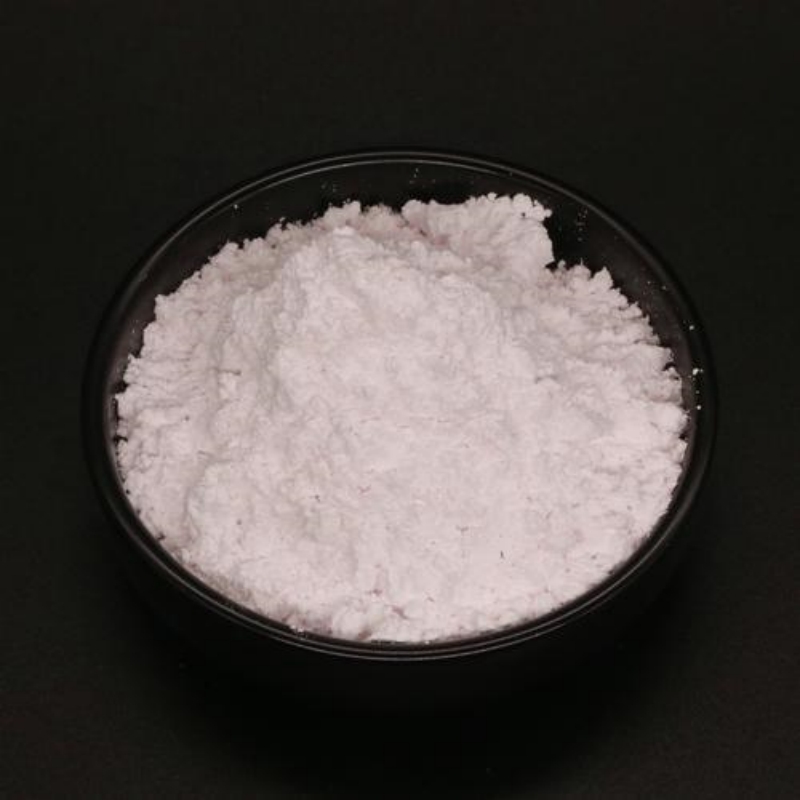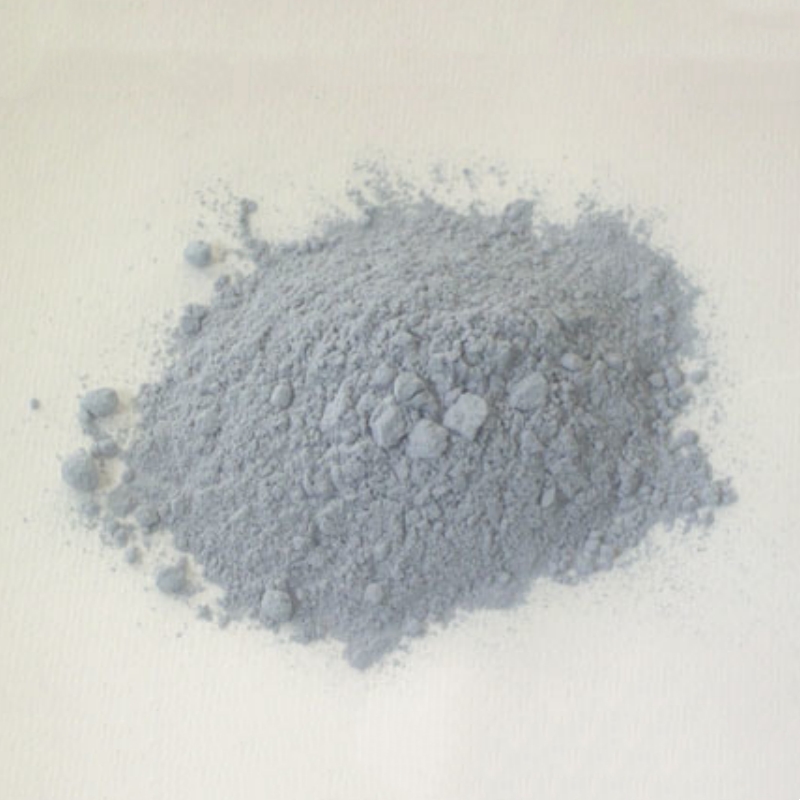Product Overview
Hafnium wire is a high-purity wire form of hafnium metal, known for its outstanding high-temperature resistance and corrosion resistance. It is extracted and processed from high-purity hafnium, with a silver-gray luster and a density of 13.31 g/cm³. The wire has a melting point of 2233°C and forms a stable oxide protective layer in air. Hafnium wire offers excellent chemical stability, especially in high-temperature and highly corrosive environments.
Features
- High Density and Exceptional Heat Resistance:Ideal for high-temperature applications.
- Good Oxidation and Corrosion Resistance:Performs well, particularly in high-temperature environments.
- Easy to Process and Customize:Suitable for a wide range of applications.
- High Stability at Elevated Temperatures:Resistant to reactions, making it suitable for use in harsh conditions.
Applications
- Nuclear Industry:Due to its high neutron absorption cross-section, hafnium wire is widely used in nuclear reactors for control rods and reactor shielding.
- High-Temperature Materials:Hafnium wire is commonly used in aerospace applications as a high-temperature material for components such as nozzles and injectors.
- Electronic Materials:In high-temperature electronic devices, hafnium wire is used for electrodes, wires, and other critical components.
- Alloy Materials:Hafnium wire is alloyed with metals like tungsten and molybdenum to improve high-temperature strength, widely used in the production of high-performance alloys.
- Chemical and Corrosion-Resistant Materials:Hafnium wire’s corrosion resistance makes it ideal for use in chemical industrial equipment, including corrosion-resistant devices and heat exchangers.
| Element | Measured Value | Standard Value | Unit | Element | Measured Value | Standard Value | Unit | Element | Measured Value | Standard Value | Unit |
| Li | <0.005 | ppm | Zn | <0.01 | ppm | Pb | <0.01 | ppm | |||
| B | <0.001 | ppm | Ga | <0.01 | ppm | Bi | <0.01 | ppm | |||
| F | <0.05 | ppm | Ge | <0.01 | ppm | Y | <0.05 | ppm | |||
| Na | 0.11 | ppm | As | <0.005 | ppm | Th | <0.001 | ppm | |||
| Mg | 0.01 | ppm | Se | <0.05 | ppm | Er | <0.005 | ppm | |||
| Al | 0.08 | ppm | Zr | 0.29 | wt% | Ru | <0.005 | ppm | |||
| Si | 0.23 | ppm | Nb | 0.54 | ppm | Rh | <0.01 | ppm | |||
| P | 0.006 | ppm | Mo | 0.39 | ppm | Os | <0.05 | ppm | |||
| Cl | <0.05 | ppm | Pd | <0.05 | ppm | Cd | <0.05 | ppm | |||
| K | 0.02 | ppm | Ag | <0.05 | ppm | In | 0.01 | ppm | |||
| Ca | 0.02 | ppm | Sn | <0.05 | ppm | ||||||
| Ti | 0.07 | ppm | Sb | <0.05 | ppm | ||||||
| V | <0.005 | ppm | Ba | <0.05 | ppm | ||||||
| Cr | 0.06 | ppm | Hf | Matrix | wt% | ||||||
| Mn | <0.005 | ppm | Ta | <5 | ppm | C | 20 | ppm | |||
| Fe | 1.9 | ppm | W | 0.03 | ppm | S | 0.07 | ppm | |||
| Co | <0.005 | ppm | Pt | <0.1 | ppm | O | 40 | ppm | |||
| Ni | 0.06 | ppm | Au | <0.05 | ppm | N | <10 | ppm | |||
| Cu | <0.05 | ppm | Hg | <0.05 | ppm | H | 6 | ppm |
 new material
new material

